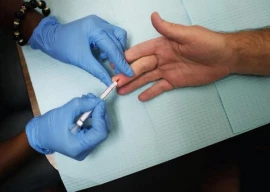
PJMA made this announcement during a seminar on plantation of jute crop arranged by the association in collaboration of Ayub Agriculture Institute (AARI) and Punjab Agriculture Department.
During the seminar, researchers from AARI said that Pakistan needed only 150,000 acres to meet the requirement of the 12 jute mills in the country. Whereas, the government’s decision to switch to polypropylene bags from jute has resulted in the closure of five mills during the last two years.
PJMA also assured them of a provision of free seed, guidance from sowing to retting and buying all the produce.
Speaking on the occasion, Director of AARI Dr Abdus Sattar stressed the need for ensuring profitability to the growers in order to convince them to alter their traditional sowing practices.
Sattar urged the growers that this will not only save the country’s foreign exchange, but also foster the industry that provides direct employment to over 4,000 people and indirectly supports 100,000 families.
PJMA Vice Chairman Mian Meraj Din during his brief speech gave his assurance that the association will not only buy the whole produce but would also ensure that they would get a better price compared to cotton.
Din said that the association will support the growers in the process of plantation and marketing their produce and will also provide technical assistance required to adopt the new methods of growing.
District Officer Agriculture Muzaffargarh Jamshed Gashkori called for setting up simulation plants throughout the province in order to provide a chance to the growers to witness the process.
Gashkori said that although the farmers were not in a position to experiment with new crops, once the experiment would succeed, then farmers might not need further assistance from mills in this regard as they know how to optimize the growth of the crop from their land.
AARI Agronomist Mukhtar Ahmed Sheikh gave a presentation to the growers about jute plantation.
Sheikh said that irrigation is suitable for areas which are near rivers, or are low lying areas.
He said that the best growing period for fiber crop is from April 15 to May 31 and if growers are sowing jute for seed multiplication the best time is from May 15 to June 15.
Sheikh said that jute cultivation is easy because it entails less labour as land could be prepared for seeding after ploughing twice. He said that it needed less amount of fertilizer, pesticides and watering and that sowing can be made both by drill or broadcast measures and need less take care than cotton.
However he said that growers need to pay attention on weeds to save the crop.
A large number of farmers attended the seminar and expressed their interest in cultivating jute on a commercial level with the condition that full technical guidance would be given along with free seed fertilizer and buy back guarantee. A delegation of Agriculture Journalist Association also attended the seminar.
1731619853-0/ice-cream-(1)1731619853-0-405x300.webp)
















COMMENTS
Comments are moderated and generally will be posted if they are on-topic and not abusive.
For more information, please see our Comments FAQ